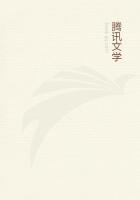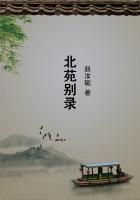He determined to take sanctuary in Westminster Abbey, so he again went thither in an omnibus, and finding that the doors were not open for morning service, he paid his twopence, and went in as a sightseer. It occurred to him that he had no definite place of rest for the day, and that he should be absolutely worn out before his interview if he attempted to walk about from 10 A.M. to 10 P.M., so he sat himself down on a stone step, and gazed up at the figure of William Pitt, who looks as though he had just entered the church for the first time in his life and was anything but pleased at finding himself there.
He had been sitting unmolested about twenty minutes when the verger asked him whether he wouldn't like to walk round.
Mr Harding didn't want to walk anywhere, and declined, merely observing that he was waiting for the morning service.
The verger, seeing that he was a clergyman, told him that the doors of the choir were now open, and showed him into a seat.
This was a great point gained; the archdeacon would certainly not come to morning service at Westminster Abbey, even though he were in London; and here the warden could rest quietly, and, when the time came, duly say his prayers.
He longed to get up from his seat, and examine the music- books of the choristers, and the copy of the litany from which the service was chanted, to see how far the little details at Westminster corresponded with those at Barchester, and whether he thought his own voice would fill the church well from the Westminster precentor's seat. There would, however, be impropriety in such meddling, and he sat perfectly still, looking up at the noble roof, and guarding against the coming fatigues of the day.
By degrees two or three people entered; the very same damp old woman who had nearly obliterated him in the omnibus, or some other just like her; a couple of young ladies with their veils down, and gilt crosses conspicuous on their prayer-books; an old man on crutches; a party who were seeing the abbey, and thought they might as well hear the service for their twopence, as opportunity served; and a young woman with her prayer-book done up in her handkerchief, who rushed in late, and, in her hurried entry, tumbled over one of the forms, and made such a noise that everyone, even the officiating minor canon, was startled, and she herself was so frightened by the echo of her own catastrophe that she was nearly thrown into fits by the panic.
Mr Harding was not much edified by the manner of the service. The minor canon in question hurried in, somewhat late, in a surplice not in the neatest order, and was followed by a dozen choristers, who were also not as trim as they might have been: they all jostled into their places with a quick hurried step, and the service was soon commenced. Soon commenced and soon over--for there was no music, and time was not unnecessarily lost in the chanting. On the whole Mr Harding was of opinion that things were managed better at Barchester, though even there he knew that there was room for improvement.
It appears to us a question whether any clergyman can go through our church service with decorum, morning after morning, in an immense building, surrounded by not more than a dozen listeners. The best actors cannot act well before empty benches, and though there is, of course, a higher motive in one case than the other, still even the best of clergymen cannot but be influenced by their audience; and to expect that a duty should be well done under such circumstances, would be to require from human nature more than human power.
When the two ladies with the gilt crosses, the old man with his crutch, and the still palpitating housemaid were going, Mr Harding found himself obliged to go too. The verger stood in his way, and looked at him and looked at the door, and so he went. But he returned again in a few minutes, and re-entered with another twopence. There was no other sanctuary so good for him.
As he walked slowly down the nave, and then up one aisle, and then again down the nave and up the other aisle, he tried to think gravely of the step he was about to take. He was going to give up eight hundred a year voluntarily; and doom himself to live for the rest of his life on about a hundred and fifty. He knew that he had hitherto failed to realise this fact as he ought to do. Could he maintain his own independence and support his daughter on a hundred and fifty pounds a year without being a burden on anyone? His son-in-law was rich, but nothing could induce him to lean on his son-in-law after acting, as he intended to do, in direct opposition to his son-in-law's counsel. The bishop was rich, but he was about to throw away the bishop's best gift, and that in a manner to injure materially the patronage of the giver: he could neither expect nor accept anything further from the bishop. There would be not only no merit, but positive disgrace, in giving up his wardenship, if he were not prepared to meet the world without it. Yes, he must from this time forward bound all his human wishes for himself and his daughter to the poor extent of so limited an income. He knew he had not thought sufficiently of this, that he had been carried away by enthusiasm, and had hitherto not brought home to himself the full reality of his position.
He thought most about his daughter, naturally. It was true that she was engaged, and he knew enough of his proposed son-in-law to be sure that his own altered circumstances would make no obstacle to such a marriage; nay, he was sure that the very fact of his poverty would induce Bold more anxiously to press the matter; but he disliked counting on Bold in this emergency, brought on, as it had been, by his doing. He did not like saying to himself, Bold has turned me out of my house and income, and, therefore, he must relieve me of my daughter; he preferred reckoning on Eleanor as the companion of his poverty and exile--as the sharer of his small income.













